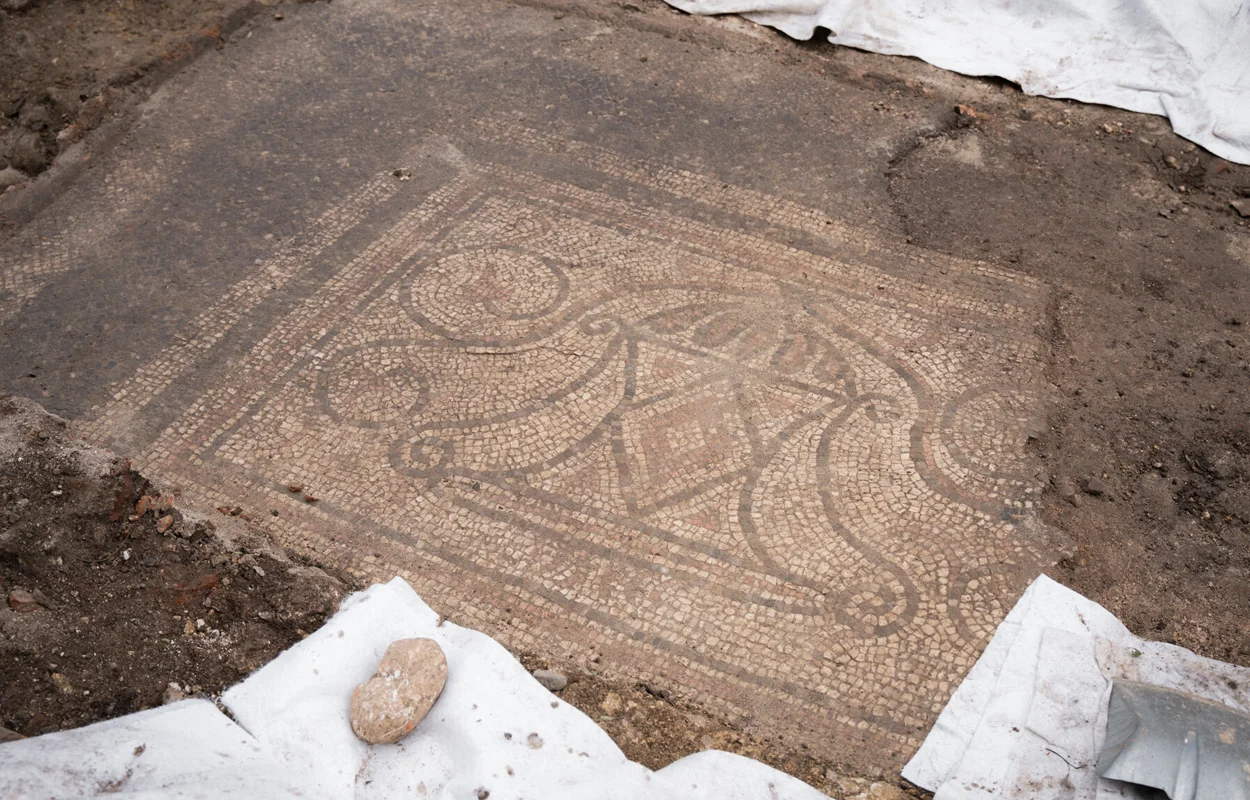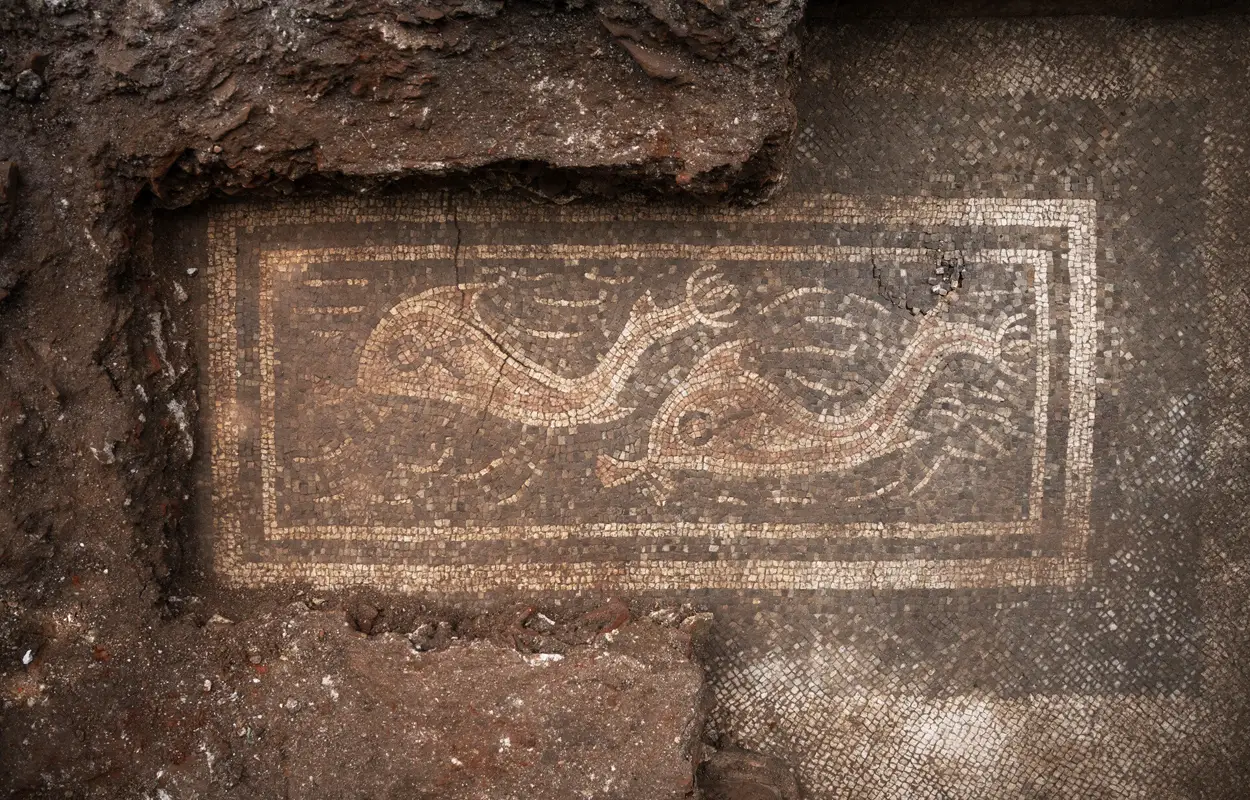Archaeologists from OÖ Landes-Kultur GmbH and the University of Salzburg have uncovered an expansive Roman villa complex on Reinberg hill in Thalheim bei Wels, Austria.
The villa overlooked the ancient city of Ovilava, a municipium in the Roman province of Noricum. Ovilava was elevated to colonia status and renamed Colonia Aurelia Antoniana Ovilabis, and later, it became the capital of the newly established province of Noricum Ripensis.
Excavations began in 2023 and have so far uncovered over 1,000 square metres of the complex, along with three well-preserved mosaic floors. The most notable of these features an aquatic scene depicting two dolphins appearing to swim through water.
According to experts, the mosaic dates from the 2nd century AD and is an “absolute rarity” for Upper Austria, providing a unique insight into the artistry enjoyed by the regions Roman elite.

Another mosaic displays an intricate depiction of a wine mixing vessel, while the third, still only partially excavated, features geometric patterns.
“The mosaics of Thalheim demonstrate once again the impressive cultural treasures our country contains,” said Governor Thomas Stelzer (ÖVP). He pointed to Upper Austria’s long history of settlement and its visible traces, for example, along the Danube Limes and in the Hallstatt region.
Plans for a permanent display of the finds are already underway. The mosaics may be incorporated into the newly designed archaeology exhibition at the Linz Castle Museum, with inclusion in the Wels State Garden Show in 2027 also being considered.
Header Image Credit : OÖ Landes-Kultur GmbH
Sources : OÖ Landes-Kultur GmbH





